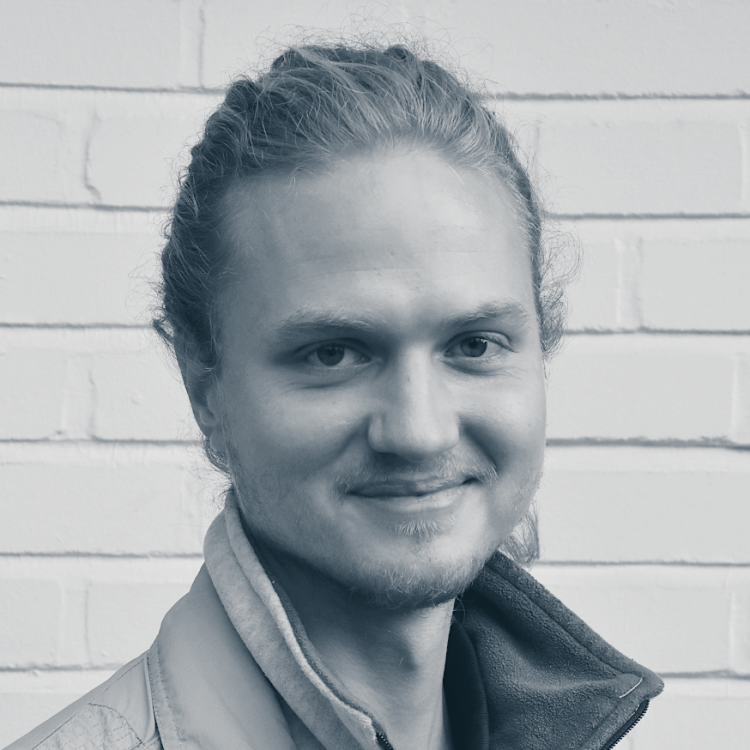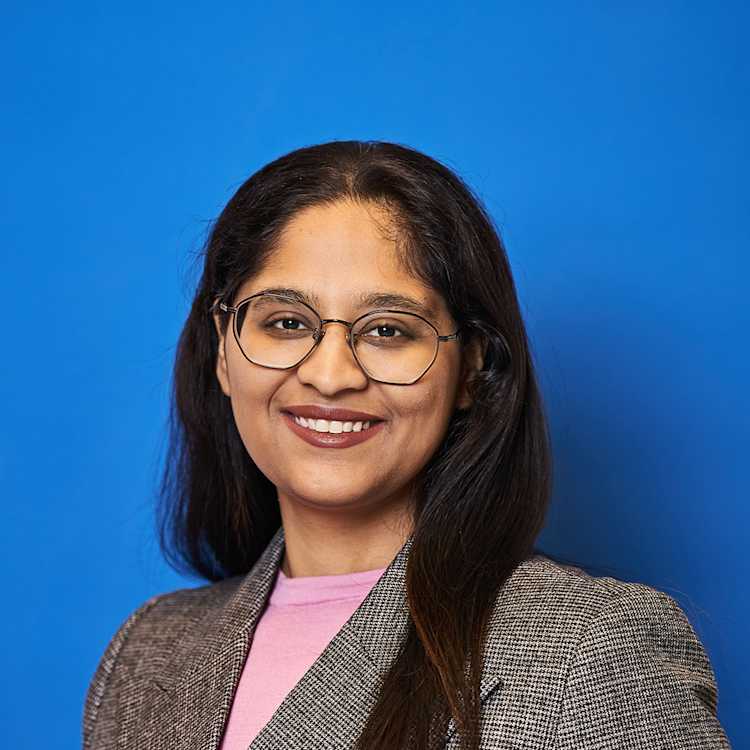- Startseite
- Presse
- “Spotlight on...” Neue Doktorand:innenvertretung Adhiraaj, Alina, Cornelius und Mahima
Spotlight on... | 15.04.2025
“Spotlight on...” Neue Doktorand:innenvertretung Adhiraaj, Alina, Cornelius und Mahima
In the General Assembly of the Doctoral Researchers last December, Adhiraaj Anand, Alina Ripplinger, Cornelius Haritz and Mahima Duggal were elected to be the new representatives of the Doctoral Researchers from 2025 onwards. In this interview, they introduce themselves, their motivation to run for office, and issues important to them.
Adhiraaj joined the GIGA Doctoral Programme in October 2023. For his PhD, he is researching social movements and transnational activism in Asia, with a focus on Taiwan, Thailand and Indonesia.
Alina has been part of the GIGA Team and the Doctoral Programme since November 2022. She is working on her dissertation titled “Politics of Legal Resistance” asking how law has been used to contest autocratization.
Cornelius also started his PhD and joined the GIGA Doctoral Programme in November 2022. His project investigates how the issues of conflict parties in civil war shape its sustainable termination.
Mahima joined the GIGA in October 2023, alongside Adhiraaj. Her doctoral project investigates the EU’s evolving role as a geopolitical actor in the Indo-Pacific strategic space.
In this interview, they speak about their motivation to run for office, and issues that are important to them:
What made you decide to run as a representative of the Doctoral Researchers?
Alina: This is my second term as representative. During the first term, one of the main initiatives I was involved in was the co-organisation of the Doctoral Researchers’ conference "Researching with the Global South". It was both a challenging and a very enriching experience, with so many colleagues and external guests contributing with enthusiasm and commitment. This experience encouraged me to continue working in what I see as a creative space for shaping our academic environment.
Cornelius: On the one hand, I had not taken on the job before, and I wanted to give back to the community at least with one term. On the other hand, I enjoy interacting a lot with the other members of the Doctoral Programme, and so it was an opportunity to put this to use.
How would you describe your main tasks and responsibilities as representatives of the Doctoral Researchers?
Adhiraaj: I see my role as mediating between the Doctoral Researchers and the institute leadership, ensuring that our voices are heard and working to improve the experience of Doctoral Researchers at the GIGA.
Mahima: As a representative, I believe my role is to serve as a bridge between Doctoral Researchers and the institution, ensuring that concerns, needs, and suggestions are communicated effectively. This includes addressing academic and administrative issues and fostering a stronger sense of community among Doctoral Researchers.
What are central topics you would like to address?
Cornelius: The topic that is closest to my heart is how we can benefit from each other’s great expertise and experiences. The Doctoral Programme is a group of super diverse, proficient and well-meaning individuals. In our day-to-day, however, we do not necessarily engage with each other too much. I think if we can create opportunities to make use of this for each other, we did a good job. That is also the reason why we aim to organise a retreat.
Mahima: Having experienced both the rewards and challenges of doctoral life, I want to contribute actively to ensuring an easier, more enjoyable PhD experience for my peers. If nothing else, I want to make sure no one feels alone in this wild academic journey. I agree with Cornelius that meaningful engagement often takes a backseat to our individual research demands, which sometimes disconnects us from the diverse and talented group of Doctoral Researchers. I hope to create more opportunities for us to connect, exchange knowledge, and support one another – whether through academic discussions, peer mentoring, or informal gatherings. At the same time, institutional support plays a crucial role in enabling collaboration. Clearer communication on administrative processes and better access to resources for activities like a retreat and various workshops will help build a more cohesive and supportive academic environment.
What do you hope to achieve during your term as representatives?
Adhiraaj: I look forward to organising a retreat for us Doctoral Researchers, so that we can exchange our wisdom and experiences, enriching each other’s work, and build more of a sense of community.
Alina: I agree. The retreat would also be a great achievement for me. Academia is facing increasing risks and challenges, and as PhD students we often feel uncertain about our future anyway. Hopefully we can organise the retreat and look at the concerns and challenges together. Beyond the retreat, another achievement would be a small workshop, along the lines of the working groups that emerged after our Doctoral Researchers’ conference, where we also look at the role of academia in shrinking (civic) spaces.
Contact

GIGA Doctoral Programme
The GIGA has a long tradition of integrating young scholars into its research matrix. This culminated in the establishment of the GIGA Doctoral Programme, which seeks to provide a platform for both German and international early-career academics. Herewith they can pursue continued professional development and their own research, particularly in the field of Comparative Area Studies.
Doctoral Programme


